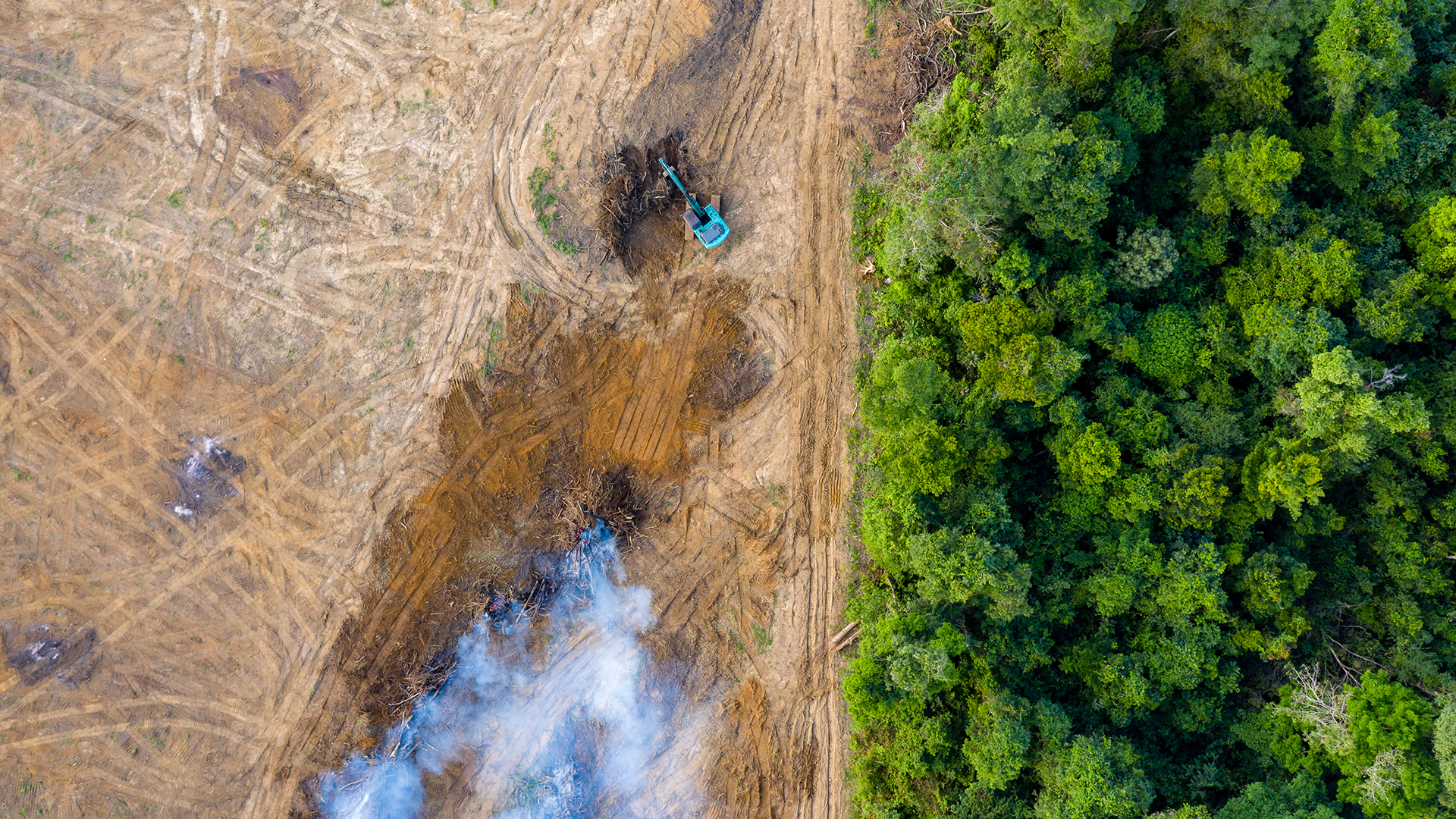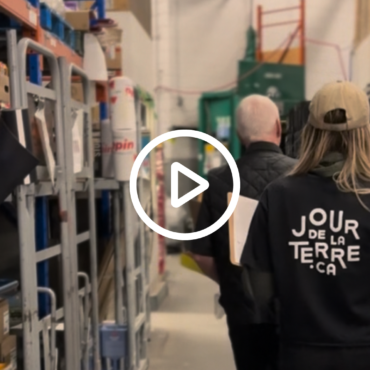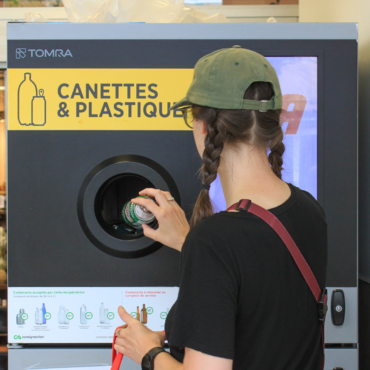Blog & News
News

When I first discovered anthropologist Fanny Parise’s book1, I was floored. Is eco-responsible consumption a scapegoat for not making any changes? She analyzes how the injunction to “consume better and less” becomes “consume better and more.” And what if, despite trying to get away from overconsumption, I also participated in responsible hyper-consumption?
My role as someone who’s aware that unlimited growth on a limited planet is leading us to disaster is therefore, among other things, to consume less before consuming better.
Even though I know that our individual actions have limits2, here’s how I go about “de-consuming” to make sure my actions are aligned with my values!

Researching and making informed choices
For me, it all starts with opening our eyes to the social, societal and environmental impacts of what we consume: most highly damaging products are well documented! Avocado, palm oil, cashew, industrial meat… these can be banned from our consumption or considered a luxury we indulge in as little as possible.
What’s more, some are harmful to our health when over-consumed, like red meat and highly processed foods. So I think twice before putting them in my basket!
• And since I’m lucky enough to earn enough to live:
I choose fair trade products for coffee, tea, sugar and cocoa by relying on the labels Fairtrade and SPP (Symbol of Small Producers) in grocery stores, or buying in bulk from Camino.
• I support local businesses that work to offer us sustainable alternatives, such as Prana for nuts, Equifruit (check out how great their site is!) for bananas or my favourite bulk retailer. Also, Quebec/Canada has an invaluable resource for replacing sugar: Acer saccharum, famous producer of maple syrup.

Taking the time to reflect
Humanity has never bought so fast, and that’s scary! Nothing’s easier than two clicks from the comfort of your sofa, with online shops being accessible to us 24 hours a day, 7 days a week. It’s crazy how much effort it takes to restrain ourselves from purchasing.
A few tips that work for me:
• Ask yourself (twice rather than once): do I really need this?
• Take more time between the desire to buy and the act of buying.
• Keep lists of everything you want to buy and keep them as long as possible to see if the need is still there or if it’s gratuitous. I promise you that very often, some items on your list will eventually be crossed off!
• Delete your automatically stored credit card info from your devices. A simple but effective trick!
Refuse advertising as much as possible…
This is the crux of the problem: too many ads are designed to create false needs. The less I see of them, the better I feel. These actions are easy and make me feel good:
• Ask your post office to stop receiving advertising mail,
• Install an internet ad blocker like Adblock, adding exceptions to support people who create free informational content,
• Unsubscribe from commercial newsletters (but not from your favourite organizations, of course!) thanks to Cleanfox.
… and calls for mass consumption!
Think of all the time and money you can save by avoiding purchases this way
For my part, I avoid shopping centres, malls and other places that are emblems of overconsumption. I’ve also boycotted Black Friday, Cyber Monday, winter and summer sales.

Find a better alternative
Finally, because pooling and sharing allow us to enjoy an item without needing to own it individually, I first seek to borrow before buying:
• Join a Facebook group like “buy nothing – name of your town” or “entraide – name of your town” or “as-tu ça toi – name of your town.”
• Dare to knock on your neighbours’, friends’ or colleagues’ doors to borrow something.
• Test the Partage Club app which offers 3 free-trial months. There’s even a calendar with loan return dates. No more wondering to whom I might have lent this or that business!
• Having a library card and taking advantage of it is an unsuspected opportunity.
I was recently able to borrow a table for an event, games, a dehydrator, a blender and even an autoclave – that’s an eco-saving of at least $450!
We can also carpool to reduce the need to own a car in the city:
• Communauto to take advantage of self-service vehicles,
• Poparide and Covoiturage.ca to meet new people and save money on your commute,
• Turo to rent vehicles from private owners,
• Shared bikes in your city if you’re lucky enough to have them.
More ideas for people living in non-urban areas:
• Ask your employer if they would be willing to offer financial assistance to encourage active commuting and public transit.
• Suggest that your employer encourage employees to carpool.
• Contact the municipality to ask for more public transport. Politics aren’t just about voting!
Well, I hope I’ve given you some practical ideas for questioning our consumption and reducing it, one step at a time.
Let’s not forget all our power to influence, whether through our individual gestures, our stances or our actions on a larger scale 🙂
We still need more people to reverse the trend!
Footnotes:
Les enfants gâtés du capitalisme responsable by Fanny Parise, published by Payot.
And yes, our individual gestures won’t be enough. According to a study conducted by the Institut de recherche et d’informations socioéconomiques (IRIS) in May 2023, “In Quebec, reducing individual consumption is insufficient to counter the ecological crisis.” The study shows that “the strict consumption vital to Quebec is not ecologically viable, the ecological transition cannot be limited to an approach of reducing demand and requires a major transformation of production systems.” The study also concludes that “In Quebec and Canada, current statistical tools for measuring society’s ecological footprint are inadequate and underdeveloped compared to what is done in the European Union. Yet this information is crucial to the adoption of informed public policies for ecological transition.” So let’s stay vigilant and alert to the failings of governments and companies!

Workshops, Team Manager
Camille Defoly
Joyful and positive, Camille is convinced that intentional daily actions make a difference! Her passion for theatre has led her to lead and organize several events. She loves to cook and to try new dishes with her leftovers. A friendly person, she is fond of board games. For her, all nature trips are an opportunity to marvel at wildflowers and mushrooms.
View all posts...Related posts :
Contact us
Earth Day Canada
5818, boulevard Saint-Laurent
Montréal (Québec) H2T 1T3 Canada
Phone : (514) 728-0116
Toll free : 1 800 424-8758
Fax : (514) 303-0248
Email: hello@earthday.ca
2025 © Earth Day Canada. All rights reserved.
Privacy policy · Terms of use · Trademark










